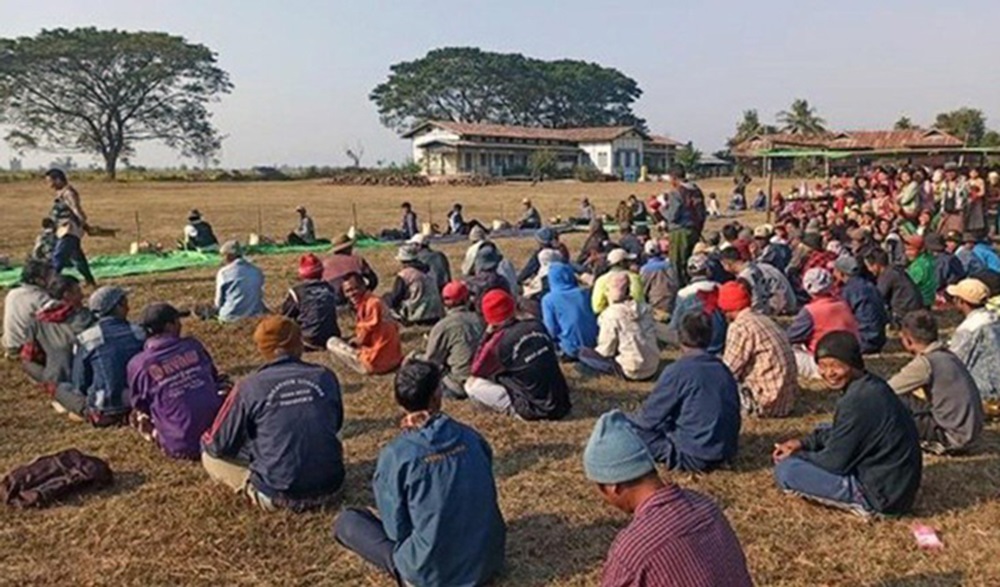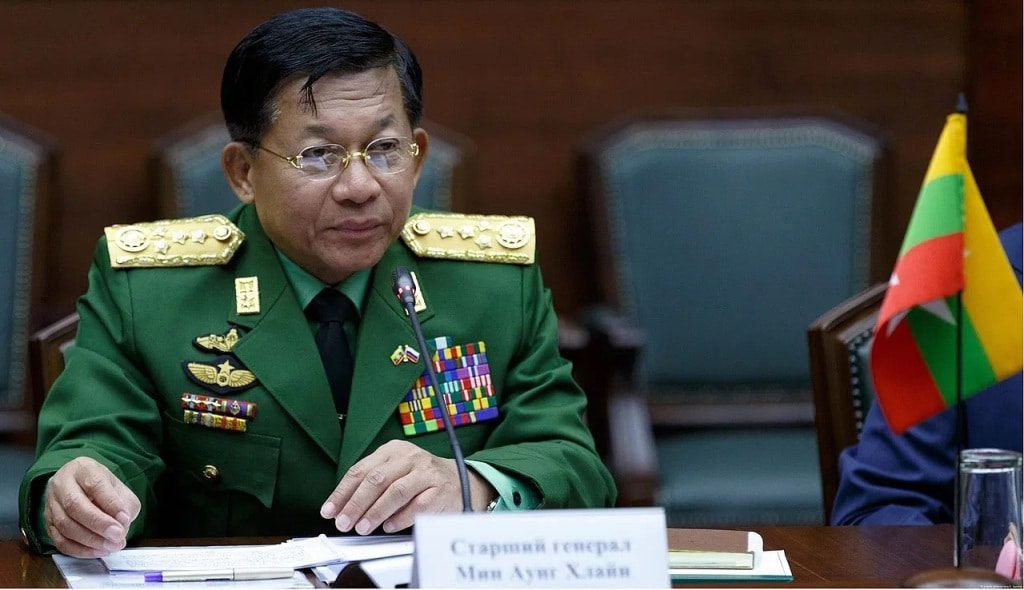Myanmar’s ruling military intends to call up young people for forced duty to fight their own people beginning in April, as well as retired security officers, according to media sources, as the army tries to quash an anti-junta insurgency.
The country has been in upheaval since the military seized control from an elected government in a 2021 coup, and the junta’s intentions to call up additional people to fight indicate that the military is under increasing strain.
Last Saturday, Myanmar’s junta said that a law requiring mandatory military service for men aged 18 to 35 and women aged 18 to 27 will be implemented for up to two years. On Tuesday, it announced that this would begin in April.
“We are working to implement conscription after the new year’s holiday in April,” junta spokeswoman Zaw Min Tun told reporters, referring to Myanmar’s most important holiday, Thingyan.
He stated that medical checks will be performed, and that each intake would be approximately 5,000. Zaw Min Tun did not respond to a phone call requesting comment, but state television MRTV quoted him as stating retired security forces members who had left within the last five years would also have to return to the army.
He did not specify how many would be called up or when, but stated that only those “who were necessary” would be included.
A law demanding conscription was introduced in 2010, although it has not been enforced. Those who fail to comply with the draft face up to five years in prison, according to the legislation.
The Myanmar junta has not revealed the size of its military, but analysts and a diplomat in Southeast Asia say it is having difficulty recruiting soldiers and has resorted to deploying non-combat people to the front lines.
Since October, the Tatmadaw, as the military is called, has lost people while fighting a coordinated onslaught by a coalition of three ethnic-minority insurgent groups aligned with pro-democracy militants. Plans to summon more ordinary individuals are increasing the pressure on some to abandon the conflict-torn country, according to media reports and social media posts.
“It is really bad for our generation,” said a 27-year-old firm worker in Yangon who was attempting to flee but declined to be identified due to fears of being targeted by officials.
The Tyranny of Myanmar’s Gen Min Aung Hlaing
Myanmar’s Gen Min Aung Hlaing has been the center of global attention due to his oppressive tactics and human rights abuses that have sent shockwaves through the international community.
Gen Min Aung Hlaing, a five-star general, ascended through the ranks of the Tatmadaw, the armed forces of Myanmar. His grip on power from the Myanmar coup has tightened as Myanmar transitioned to a facade of democracy, showcasing a facade of change while maintaining a firm hold on authority.
Despite facing international condemnation and sanctions, Gen Min Aung Hlaing remained steadfast in his quest for control, portraying a facade of legitimacy while strangling the very democracy he claimed to uphold.
Under Gen Min Aung Hlaing’s rule, Myanmar witnessed a surge in human rights violations and political oppression. The junta led by him resorted to brutal tactics to silence dissent and maintain a grip on power, instilling fear among the populace and curtailing basic freedoms.
The once-thriving democracy of Myanmar now stands on the brink of collapse under the weight of Gen Min Aung Hlaing’s tyrannical regime.
The reign of Gen Min Aung Hlaing of the Myanmar military symbolizes a global struggle for political freedom and human rights. As the international community grapples with how to address his tyrannical regime, the plight of the people serves as a stark reminder of the enduring fight for democracy and justice in the face of oppression.
Gen Min Aung Hlaing’s tyrannical rule has cast a shadow over the country, undermining the very values of democracy and freedom. As the world watches, the fate of Myanmar hangs in the balance, caught between the iron grip of a dictator and the resilient spirit of a people yearning for liberation.
The story of Gen Min Aung Hlaing serves as a cautionary tale of the fragility of democracy and the relentless struggle for justice in the face of tyranny.







